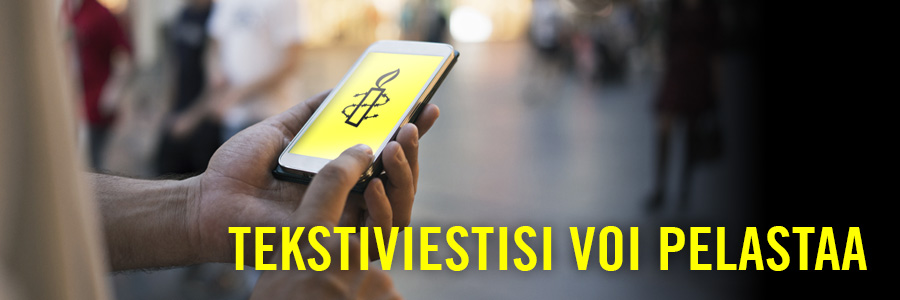Dear Mr Gholamhossein Mohseni Ejei,
Rapper, Toomaj Salehi, 33, is at risk of execution after a Revolutionary Court in Esfahan province sentenced him to death in April 2024. He was convicted of “corruption on earth” (efsad fel arz) solely in relation to his participation in protests during the “Woman Life Freedom” uprising and his critical social media posts condemning the Iranian authorities’ oppression and executions and calling for human rights and freedom for the people of Iran. His appeal is pending before the Supreme Court.
The authorities arbitrarily arrested Toomaj Salehi on 30 October 2022 in Chaharmahal and Bakhtiari province and subjected him to enforced disappearance for a month by refusing to disclose his whereabouts to his family. He was transferred to a detention facility run by the Intelligence Organization of the Revolutionary Guards inside Esfahan central prison before being moved to the public ward after 252 days. After he was released on bail on 18 November 2023, he said in a video published on his YouTube page that he was tortured during arrest, including through repeated beatings, resulting in fractures in his hands and leg, and loss of consciousness for two days. He said agents injected him with an unidentified substance in his neck and subjected him to psychological torture, including solitary confinement for eight-nine months. An informed source also told Amnesty International that agents poured water over him and gave electric shocks to his feet; held a gun to his head and threatened to kill and bury him in a hole they dug in the ground; stomped on his chest; smashed his leg between a car door; and left him with an eye injury affecting his eyesight. He was re-arrested on 30 November 2023 and is imprisoned in Esfahan central prison. He continues to suffer from torture-related injuries, including pain in his leg and hands for which he needs surgery, but the authorities have denied him access to adequate medical care.
In July 2023, after a grossly unfair trial in which Toomaj Salehi was denied access to a lawyer for two months, he was convicted of six of the eight charges against him and sentenced to 18 years and nine months in prison and 40 lashes. In November 2023, the Supreme Court overturned this verdict, ruling to remove five of the eight charges against him, and referred the case back to Branch 1 of the Revolutionary Court in Esfahan for retrial. In January 2024, the Revolutionary Court called the Supreme Court’s ruling “advisory” and ordered for a new indictment to be issued by the prosecution, retaining all the previous charges and adding two new ones, and in April 2024 sentenced him to death.
I call on you to halt any plans to execute Toomaj Salehi, quash his conviction and death sentence, and release him immediately and unconditionally, as he is held solely for the peaceful exercise of his human rights. Pending his release, provide him with adequate healthcare and regular visits with his family and lawyers; protect him from further torture and other ill-treatment; and order an independent, effective and impartial investigation into his torture allegations, bringing anyone suspected of criminal responsibility to justice in fair trials. I urge you to grant independent observers access to protest-related capital trials and immediately establish an official moratorium on executions with a view of abolishing the death penalty.
Taustatietoa
In a media interview on 30 October 2022, the day of Toomaj Salehi’s arrest, the prosecutor of Esfahan, Mohammad Mousavian, violated his right to the presumption of innocence by publicly accusing him of playing a “key role in instigating, inciting and encouraging riots”. In violation of his rights not to self-incriminate and to presumption of innocence, the Islamic Republic of Iran Broadcasting (IRIB) and other state media outlets broadcast multiple propaganda videos accusing Toomaj Salehi of “inciting sedition and street riots” and showing his arrest and forced “confessions” obtained while he was detained without access to a lawyer and subjected to torture and other ill-treatment. On 27 November 2022, authorities announced that they had indicted him on multiple charges, after which his lawyer, Amir Raesian, stated in a media interview that Toomaj Salehi’s legal team had submitted objections to the case against him, including on the grounds that the criminal investigation and charges were flawed. The Revolutionary Court accepted these objections and returned the case to the prosecution to “correct deficiencies in the investigation”, though the charges were not amended by the prosecution authorities.
Toomaj Salehi’s trial took place on 2 July 2023 before Branch 1 of the Revolutionary Court in Esfahan. He was only permitted 30 minutes to meet with his lawyers in Esfahan Intelligence Detention Centre prior to the trial, which did not provide them enough time to fully explain to him the nature of the eight charges he faced. On 10 July 2023, Toomaj Salehi’s lawyer said in a media interview that Branch 1 of the Revolutionary Court in Esfahan had issued its verdict, convicting him of six charges, acquitting him of two, and sentencing him to a total of 18 years and nine months in prison. According to his lawyer, the court sentenced him to six years and three months in prison under the Note to Article 286 of the Islamic Penal Code, which is the charge of “corruption on earth” (efsad fel arz). Article 286 of the Islamic Penal Code states: “Whoever, in a widespread manner, commits crimes against individuals’ physical integrity, crimes against national security, causes disruption in the economic structure of the country, commits arson and destruction, distributes poisonous or dangerous substances, or runs corruption and prostitution centres, in a manner that causes severe disruption in the public order of the country or causes extensive damage to the physical integrity of individuals or private and public property, or spreads corruption or prostitution in large scale is ‘corrupt’ on earth and shall be sentenced to death.” The Note to Article 286 states that if the court does not establish, from the totality of the evidence, the intention to cause widespread disruption and insecurity in public order, cause major damage, or spread corruption or prostitution on a large scale, and if the individual’s actions do not fall under other legal penalties, the individual will receive a prison sentence, rather than a death sentence. He was also sentenced to one year and three months in prison for “spreading lies with the intention of disturbing public opinion” for the same alleged acts of which he was convicted under the Note to Article 286. According to his lawyer, both these charges stem from his posts on X [formerly Twitter] in relation to the uprising and criticism of the authorities.
Toomaj Salehi was further sentenced to one year and three months in prison for “spreading propaganda against the system”; one year and three months and 40 lashes for “disturbing public order”; six years and three months for “inciting people to war and killing with the intention to disrupt national security” (Article 512); and two years and six months for “inciting people to commit acts of violence” (Article 743). In relation to the last two charges, his lawyer stated that the material elements of Articles 512 and 743 are the same, meaning that the court again convicted Toomaj Salehi twice for the same alleged acts. He was acquitted of the charges of “collaborating with a hostile government” and “insulting the Supreme Leader”. He also received a two-year travel ban, a two-year ban on music-related activities, and mandatory attendance in life skills classes held by the judiciary’s crime-prevention department. A previous six-month suspended prison sentence from 2021 was also invoked. In November 2023, Branch 39 of the Supreme Court overturned the Revolutionary Court ruling and referred the case back to the same lower court for retrial. On 21 January 2024, Toomaj Salehi’s lawyer reported on X that the Revolutionary Court had sent the case back to the prosecutor’s office and ordered for a new indictment with 10 charges to be issued, including the two he was previously acquitted of, as well as two new charges, namely “gathering and colluding to commit crimes against national security” and “complicity in armed rebellion against the state” (baghi). In April 2024, the Revolutionary Court ultimately sentenced him to death for “corruption on earth” (efsad fel arz).
On 18 November 2023, after the Supreme Court had overturned the Revolutionary Court verdict, Toomaj Salehi was released on bail. On 26 November 2023, he published a video on his YouTube page detailing the torture to which he was subjected and the formal complaints he had made to the authorities about his detention. Consequently, on 30 November 2023, the authorities re-arrested him with the judiciary announcing that he “was detained after making baseless and unsubstantiated claims online about making complaints regarding his treatment in detention and was charged with ‘spreading lies with the intention of disturbing the public mind’”. In March 2024, a criminal court in Esfahan sentenced him to one year in prison in relation to this case. He also faces charges in a new case stemming from his peaceful online activities. All his trials have been grossly unfair.


